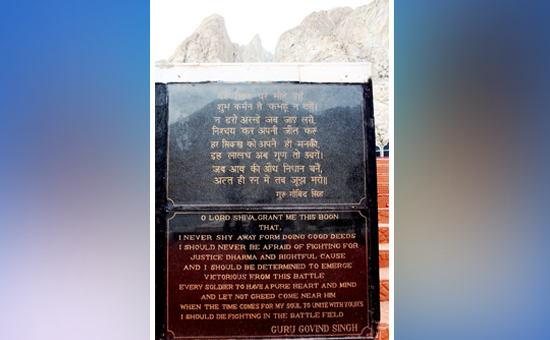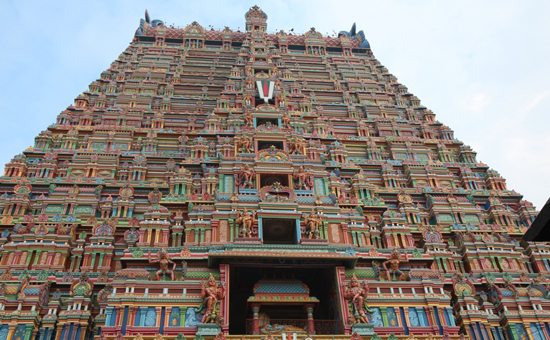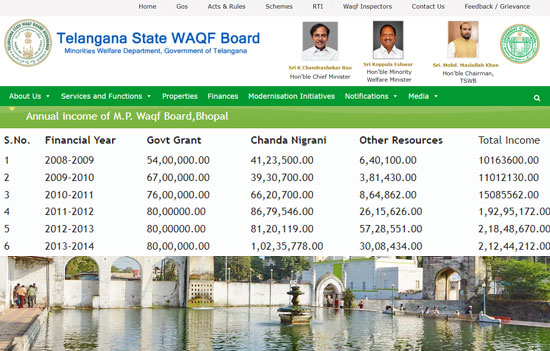- Laws
that must be changed to give Hindus equal human rights.
- India has to decolonize, turn Indic if Bharat has to
survive.
Supporters of BJP might be happy that Article 370 is scrapped and two key temples are renovated so well. I am referring to the Kashi Vishwanath Corridor and Mahakal Mandir, Ujjain.
However, the BJP government has a lot more to do to give Hindus EQUAL RIGHTS. This article presents a few key laws where Hindus are discriminated against, many of which are colonial in origin and continued for 75 years.
1. Applicability of Right to Education Act
This
author and co-author
Hariprasad
Nellitheertha wrote in Swarajyamag -
a.
Minority institutions need not reserve 25% of the seats under the Right to
Education (RTE) Act. Conversely Hindu schools have to under RTE, reserve 25% of
their seats to be allocated by the government.
Why is the responsibility of educating children from
economically weaker sections of society placed on the majority community alone?
b. There is a huge disparity on the procedure to be adopted with respect to
selection of students. Section 13 of The RTE Act says:
“No capitation fee and screening procedure for admission: (1) No school or person shall, while admitting a child, collect any capitation fee and subject the child or his or her parents or guardian to any screening procedure.”
It means that a RTE compliant institution cannot screen any child to
determine whether or not he/she will fit well into the school for students
admitted under RTE quota. A Mumbai based school administrator told this author
that many parents moved their children out of their school due to poor quality
of students admitted under RTE. It is not that the school did not want to take
students under RTE but there has to be a profile match.
Also read How
Hindu Rights Have Been Seriously Damaged by Article 30 and RTE Act
Suggestion– RTE Act must be applicable to all
schools. Better the Act can become history.
2. Rules for Majority vs. Minority community educational institutions
|
Rule
|
Majority
|
Minority
|
|
1.25% seats to be determined by
Government under RTE.
|
Applicable
|
Not applicable.
|
|
2. Screening or selections of
students for 25% quota.
|
Cannot be done.
|
No restrictions.
|
|
3. Fee reimbursement by
Government.
|
No timely
reimbursement of
fees for RTE students.
|
Not applicable.
|
|
4. Selection of Teachers.
|
Qualifications prescribed
by State government.
|
Full Autonomy.
|
|
5. Appoint teachers based on
religious considerations.
|
No.
|
Yes.
|
|
6. If aid provided no religious
instructions allowed.
|
Applies.
|
No such restriction.
|
|
7.Infrastructure requirements
of school
|
Need to comply 100%.
|
Not applicable.
|
|
8.School management committee
has strict representation requirements
|
Mandatory compliance.
|
Not mandatory.
|
|
9. Selection of principal
|
To follow Government rules.
|
Mgmt discretion allowed.
|
|
10. Fee Restrictions
|
Yes
|
No.
|
|
11. Religious Teaching allowed.
|
No.
|
Yes.
|
Above is
extract from article whose co-author is Hariprasad Nellitheertha.
Suggestion- All
schools should have the same rights, duties and compliance rules.
Dr Radhakrishnan, former President of India,
wrote in Recovery of Faith page 184: “When India is said to be a secular state, we hold that not one religion should be given preferential status.”
.jpg) How Indian is the Indian Constitution
How Indian is the Indian Constitution
3. Minority Rights
Those who speak about minority rights must read what Supreme
Court Judgment, in Mudgal vs. Union of India, A. 1995 S.C. 1531 (para 35), had
to say:
“Those who preferred to remain in India after Partition fully knew that the Indian leaders did not believe in the two nation or three nation theory and that in the Indian Republic there was to be only one Nation – the Indian Nation – and no community could claim to remain a separate entity on the basis of religion.”
So what is the origin of the concept of Minority?
J Sai Deepak wrote in India
that is Bharat, “Religious minorities in this context were denominational minorities from within the same religion, namely Christianity.” Pg. 93
Interestingly the Constitution does not define who is a
Minority! This leads to confusion.
A 2007 judgement of the Punjab
and Haryana High Court held Sikhs
not be a minority in Punjab when by population they are in majority and been
ruling the state since it was formed in 1966. SC began examining the matter in
2016 according to this report.
Dharma is inclusive by nature and is unlike “the religion of our European colonizer whose religion defined its central scripture as the ‘Word of God’ given its revelatory treatment.” 4 Pg. 67 India’s problem is that its constitution is heavily borrowed from the West and the Government of India Act 1935 . Another example is the “modern thought around equality has been shaped by Christianity.” 4 Pg. 102
Also read Why
the concept of Minority is flawed in an Indian context
It is interesting to read the "Constituent Assembly Debate on Reservation for religious minorities". R Upadhyay wrote in eSamskriti
-
Sardar Patel said, “If the process that was adopted which resulted in the separation of the country is to be repeated, then I say: those who want to have a place in Pakistan and not here. Here, we are building a nation and we are laying a foundation of One Nation, and those who choose to divide again and sow the seeds of disruption will have no place, no quarter here and I must say plainly enough.” Constituent Assembly
Debate Vol. V
Suggestion– concept
of majority and minority be done away with. The poor and backward need
assistance.
 Guru Govind Singhji prayer to Lord Siva at Siachen War Memorial.
Guru Govind Singhji prayer to Lord Siva at Siachen War Memorial.
4. Sikhs and Jains are Hindus under some Acts but Minorities under other/ ST are ST even after converting to Christianity.
From
1950 to 2014 Jains were not considered a minority till the Congress declared
them to be one before the 2014 polls. Sikhs
began to be considered a minority only after the Khalistani Movement, targeted
at Hindus, and the Congress-orchestrated 1984 riots.
Under
the Income-tax Act and the Hindu Marriages Act, Sikhs and Jains are considered Hindus meaning they can
form a HUF (Hindu Undivided Family) and avail tax benefits. However, Sikhs and
Jains are considered to be a minority for government subsidy/schemes and by the
Reserve Bank of India
Further,
scheduled tribes who have converted to Christianity are considered ST for the
purposes of income-tax exemption.
So
in Manipur today, the Meitie
community (Hindus) pay income-tax, whilst Scheduled Tribe Christian converts do
not.
Also read Tax
Laws should be same for all citizens N Is
Modern Day Sikhism a colonial construct N Were
Cholas Hindus to know the word Hindu does not truly represent Sanatana Dharma
N Comparing
Indic vs. Abrahamic Faiths
There is a need to decolonize our understanding of
Hinduism and know Dharma.
Suggestion– Can all
Indian citizens pay income-tax? Benefits if given should be on
the basis of backwardness measured by income and educational deficiency only.
5. All Indian Women to have similar Inheritance
Rights
Property is
distributed equally amongst Hindu men and women. To read more
According to Judicial
Magistrate Smt Sk. Shireen, “Muslim law does not create any distinction between the rights of men and women. However, the quantum of share of female heir is half of that of the male heirs.”
Also read Comparing
Inheritance Rights of Hindu and Muslim women in India
Suggestion–Can all
Indian Women have similar and equal inheritance rights.
 Srirangam Temple Trichy.
Srirangam Temple Trichy.
6. Can Government stop controlling Hindu temples?
Until the British came to India,
temples were managed by local communities. They were centres of dance and art,
and at the heart of a massive decentralised trade network according to author Sanjeev Sanyal.
Every temple had charitable endowments, including property
given to temples, for the benefit of the community. The benefits
included rest-houses, pathshalas, gaushalas, and
institutions for the advancement of education and feeding
of the poor.
For the British agenda of
colonisation and conversions to succeed, the temple organisation had to
be weakened. So, temples were
brought under government control mainly in south India
because not too many temples in the north possessed such
property or wealth. The British introduced The Madras Religious and Charitable
Endowments Act 1925, that overrode earlier acts, was applicable to Hindus only.
With some changes, The Tamil Nadu
Hindu Religious and Charitable Endowments Act was passed in 1959. Thus,
contributions made to Hindu temples are used by the commissioner uses to
fund various government programmes and Temple property has de-facto become pseudo-government property. According to T.R. Ramesh, President, Temple Worshippers Society Chennai – “Between 1986 and 2005 Tamil Nadu temples simply ‘lost’ 47,000 acres of land and currently more than 10 million square feet of valuable sites belonging to Hindu Temples in Tamil Nadu are under encroachment.”
The central and state governments do
not control or interfere in affairs of Churches or Mosques. Yet governments
have carried the forward the colonial legacy of regulating Hindu temple
affairs.
Also read How
Hindu Temples came under Government control
Suggestion- Since there are state legislations too, the Central government can change
central laws and state laws in states where BJP is in power. This might
compel states like Tamil Nadu, Kerala and Andhra Pradesh to change their laws. Hindus should be allowed to manage their
temples and use funds to preserve and propagate their culture and way of life.
Simultaneously a system for election/selection of governing bodies
for temple management, accounting and audit, vigilance and anti-corruption etc.
must be enacted.

7. Should India to have a “Uniform Law for
Trust and Trustees, Charities and Charitable Institutions, and Religious
Endowments and Institutions? Instead of the Waqf Board as separate from the
Charity Commissioner?
Some
notes - Is the concept of Waqf property being dedicated to The Almighty
appropriate in a Constitution driven state? Properties are managed by Waqf
(equivalent of a Trust) and State Waqf Boards. According to section 14, members of
the State Waqf Board must be Muslims be it a MP, MLA, Member of the Bar
Council, Expert in Town Planning or Management, scholar in Islamic Theology. So
also the CEO must be a Muslim. Should the Waqf
Board be conferred
with the jurisdiction to decide the question of title of the property
possessed by Followers of Dharma?
Also read All
you wanted to know about Waqf Board
Suggestion – Can
India have one law for all charities?
8. Although the Indian state aims to remove
caste and religion based affiliations its policies only reinforce them.
This
NDA-2 government informed the Rajya Sabha on 7 February 2017 that it runs nine
schemes for education empowerment of the notified minorities. According to this
Swarajya article by Arihant Pawariya, the
ministry of human resource development justifies such schemes on the basis of
Article 46 which reads:
“The State shall promote, with special care, the education and economic interests of the weaker sections of the people, and, in particular of the Scheduled Castes and Scheduled Tribes, and shall protect them from social injustice and all forms of social exploitation.”
Since
this forms part of the Directive
Principles of State Policy , it is not binding in nature.
Note that Article 46 refers to weaker sections esp. SC/ST and not minorities
even though Arihant argues that they are the biggest beneficiaries today.
The working of this article implies all minorities belongs to weaker
sections, need government scholarships whilst Hindus are all financially
well-off so do not need help.
Suggestion-
Government schemes to given based on
economic criteria.

9. Amend FCRA such that contribution of global organizations are
routed through the Government of India.
The global and organised nature of Christianity and Islam have enabled NGOs run by Indian Muslims & Christians to receive significant funds from the Middle East and Church, thus putting Hindus at a substantial disadvantage. Read Foreign Funding of Indian NGO’s N Time
to review law for funding of foreign NGOs
Suggestion-
The Foreign Contributors Regulation Act should permit only Non-resident Indians or Persons of Indian Origin to make contributions to Indian NGO’s. Foreign organizations are free to make contributions through the government of India.
10. Indianizing the Preamble
The current preable has European concepts like equality and secularism both of which have their roots in Christianity. Many Indians swear by Secularism (term is undefined). But few will tell that the Parliament of the colonial ruler who gave this concept to India, “legally provides for the presence of 26 Bishops, representing Christianity." 4 Pg. 367
Suggestion - Instead can we have Indic concepts like
Dharma, Kartavya, Samman (respect), Independent thinking (Swatantra Soch), Selfless
service etc. This will also enable their translation into Indian languages and easy understanding.
Also read What could the new Preamble be?
India has to decolonize and turn Indic if Bharat has to
survive.
References
1. Paper – Muslim Law of Inheritance by Smt Sk. Shireen. To read click on PDF
2. Examining a Muslim women’s right to property
3. Comparison of Hindu and Muslim laws of succession – good read
4. India that is
Bharat by J Sai Deepak
Also read
1. Can
the Vacations policy of the Supreme Court shed its Colonial legacy
2. Why
Secularism is not an Indian concept
3. Hindus
cannot be governed by the Christian concept of Religious Denomination
4. Comparing
Inheritance Laws for Hindu and Muslim Women
5. Regulatory Framework for NRI’s owning Agricultural Land
6. What
every Hindu girl marrying a Muslim man should know
7. How
are Minorities allowed tax benefits under HUF
All pictures by author. Article should not be republished without written
permission of www.esamskriti.com